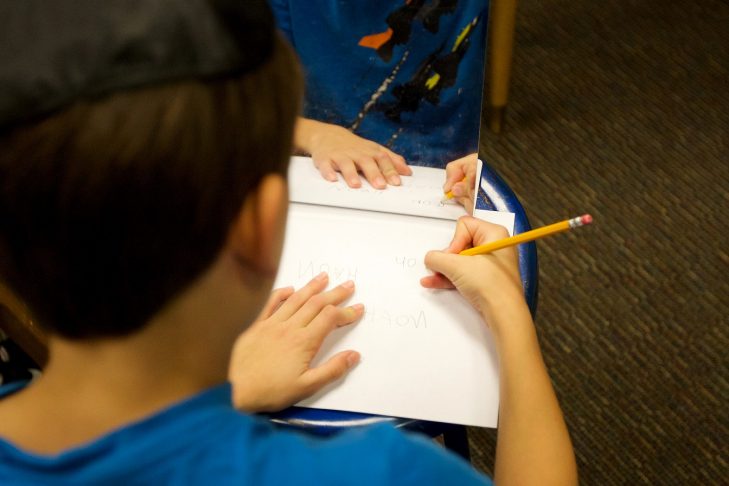It is no secret that human beings are conditioned to focus on the differences between themselves and others. Regardless of whether these dissimilarities are rooted in culture or belief or physical characteristics, we are biologically driven to take notice of them. Too often, unfortunately, the fact that others might seem very different can stand in the way of really getting to know a person, rather than as an opportunity to learn about them and from them and, in doing so, expand our own horizons. And what is true for adults is sometimes exaggerated for children, who are still trying to grasp so much about the world around them.
When an “able-bodied” child meets a person who is deaf or on the autism spectrum or in a wheelchair, for example, what differs among that “disabled person” and that child’s own experience may dominate the interaction. How can we change the equation? What if instead we furnished children with opportunities for true dialogue with the person who appears or acts different? The result becomes a valuable life lesson.
Fostering such encounters is the ambition for the Ambassadors for Inclusion (AFI) program that Gateways has pioneered with the generous support of the Ruderman Family Foundation. AFI is an experiential disability awareness initiative targeted to students in grades K-12 that teaches children and teens about an array of differences, from diabetes to food allergies to deafness to intellectual disabilities. Each curriculum unit focuses on a single topic and, once students have the chance to experience what this particular difference might mean for individuals in living their daily lives, they then have the opportunity to dialogue with invited speakers who live with these so-called “disabilities” and ask questions about those individuals’ life experiences. In a short time, the differences that children and teens initially can’t help but notice fade away as they come to appreciate everyone as fellow human beings. After all, every single person faces some level of adversity, and must find ways to overcome fears or physical or mental limitations or even disinterest to live a fuller life. When students come to see that shared experience in others, no matter how different they seem at first, they can more easily come to appreciate how others are much like themselves.
AFI builds off of an award-winning program called Understanding Our Differences, which has for decades worked in grades 3-5 in public school settings. Gateways has adapted this program to Jewish environments and has expanded it to reach all students in grades K-12. In keeping with our organizational mission, Gateways frames the entirety of the curriculum and its focus on connecting with other human beings as a Jewish value. As the final verse in the Book of Psalms declares, “Every living soul will praise God.” In other words, though each of us is uniquely created in the image of God, no matter our differences, each of us shares the capacity to be grateful and to appreciate our value in the broader world.
David Farbman is the director of the Center for Professional Learning at Gateways.
This post has been contributed by a third party. The opinions, facts and any media content are presented solely by the author, and JewishBoston assumes no responsibility for them. Want to add your voice to the conversation? Publish your own post here. MORE


